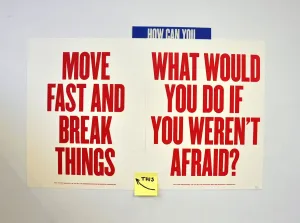
We’re living through a health and economic crisis
For business leaders, our job of running a healthy business and answering to shareholders, whilst sustaining a healthy and productive workforce is going to be challenging as tight budgets are shrinking and uncertainty abounds with C-19 and the recession and global shocks of a US election, Brexit and more.
Meanwhile for workers, zero-hours contracts, night shifts, low pay, high risk of infection, threat of automation…This has been the reality of working through the pandemic for people on the front line.
Workers in frontline jobs (think: drivers, carers, warehouse packers, nurses, refuse collectors, cleaners) are simultaneously the backbone of society and the most precarious as we head into a global recession.
For them, the essential service of unsociable hours and frontline work has reached heroic status. But we know these people are burnt out and working in unprecedented working conditions under high levels of stress.
The sprint has become a marathon
There’s little respite on the horizon from increased workloads, as second waves loom or in countries where C-19 has yet to reach its peak.
This isn’t a case of whether leaders and organisations can afford to implement a strategy to look after employee wellbeing, the real question is can they afford not to?
It’s not all doom and gloom. The days of the Health and Safety officer as solely responsible for employee wellbeing are long gone. The evidence shows resoundingly that businesses are ready to invest and employee health is big business. Even before C-19 was a daily fixture, the last 2 years have seen more than $2billion invested in digital ‘employee wellbeing’ businesses.
However, the impact of that investment is not showing returns. Digging a little deeper, this is unsurprising — fewer than 15% are based on any kind of scientific evidence about health, uptake, or what works. And many don’t address the real needs of workers. Most employers’ health-related investments are peripheral perks and only 5.6% are actually being used by workers.
“In short, we’re in a moment of high employer spend on employee health, little uptake, very low use of evidence, and virtually no positive impact on health, in the midst of the global pandemic.”
If you’re an employer you’ll know there are loads of gimmicks out there, that cost a fortune but make little difference to your people or their health. The result? More days off work, low morale, disengagement, attrition.
I’m sure you’ll agree, we could be doing better than this.
That’s why we feel the timing of our latest Brink endeavor couldn’t be more urgent
Backed by Wellcome Trust, and in partnership with experts on achieving impact that sticks like Design Council and Liminal Space, we will be exploring how organisations and their workers can access, use and respond to evidence and create the conditions to thrive.
The early working title is the ‘Evidence Accelerator’. More on that in the weeks to come.
Through questions like:
- What are the real health needs of workers on the front line and how might employers meet those needs with an approach mindful of what works (and what doesn’t)?
- Why is uptake of existing offers so low and how can businesses buy or partner with better, more relevant solutions?
- How might we accelerate workers getting meaningful support via the workplace that improves their autonomy and resilience in the face of C-19.
We will be exploring these questions for the coming months in partnership with leading businesses.
To lead this work, we welcome to Brink team Dr Sara Hamilton. Bringing 20 years of experience in frontline medicine, a PhD in neuroscience and 10 years of innovating in complex health systems, we couldn’t have hoped for a better Team Lead for this Wellcome-backed venture. Sara says:
“I am delighted to have been appointed by Brink to deliver this exciting new project, backed by the Wellcome Trust and in collaboration with teams adept at solving complex problems — Design Council and Liminal Space.
A few years ago, I made a difficult decision: I was a Hospital Consultant working with a great team and serving a diverse population which meant no day was ever the same. I loved my job. Yet, I had a yearning to achieve impact at scale. For me this meant addressing the root cause of health problems and creating the conditions for people to thrive.
This project ticks all of those boxes. Leaders in public and commercial sector organisations are well aware of the growing mental health crisis in their workforce. The increased rate of COVID-19 deaths is not limited to health workers but applies to all frontline workers: from security guards to taxi drivers, chefs to retail assistants, workers in construction and processing plants and those working in social care. Leaders have good intentions, the reason employee programmes fail to have the full impact is because working at the intersect of health, race and socio- economic disparity is complex. It’s going to take more than an app or EAP to have impact that sticks.
Brink has a track record of real world experimentation and validating what works. The Wellcome Trust gives us access to harness the latest cutting edge evidence from their global network of researchers. Together with Liminal Space and Design Council, we can design a human centred approach to improve workforce resilience.
Globally there is an increasing momentum to use COVID-19 as a lever for positive social change. I want to harness that energy to bring leaders in private and public sectors together to give something back to the workers across the world who have ‘carried society on their shoulders’ and will continue to do so.
My lived experience, means I know that the impact of our work relies on working in partnership with both essential workers and their leaders: to understand what matters to them and then engaging the whole system to be part of the solution.
At Brink we are ready to invite organisations to translate the latest evidence into strategies that improve the health and wellbeing of their essential workers.
Dr Sara Hamilton”
We have seats at the table for leaders navigating this conundrum and workers in the most frontline jobs who want to thrive at work, not just survive.
If you want to be amongst the businesses at the vanguard of this movement, let us know. We are ready to get to work.





